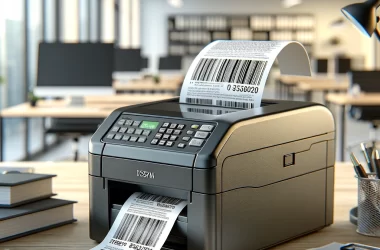Introduction
In the fast-paced world of industrial operations, the right software is as crucial as the hardware. Data collection technologies like mobile computers, thermal printers, barcode scanners, and RFID systems are the backbone of modern industry, but their efficiency hinges on the software that powers them. This article delves into various types of software integral to these technologies, from Warehouse Management Solutions (WMS) to Mobile Device Management (MDM) systems and beyond.
Warehouse Management Solutions (WMS)
WMS are sophisticated platforms that optimize warehouse operations. They manage and track the movement of materials within warehouses, facilitating processes like picking, packing, shipping, and inventory management. WMS software can integrate with mobile computers and barcode scanners for real-time data collection, improving accuracy and efficiency.
Barcode Design and Print Software
This software is essential for generating custom barcodes for labeling products, assets, and shipments. Compatible with thermal printers, it allows industries to design and print a wide range of barcode formats, ensuring compatibility with global standards and enhancing traceability throughout the supply chain.
Mobile Device Management (MDM)
MDM software is pivotal in managing, securing, and configuring mobile data collection devices across an organization. It ensures that all devices adhere to company policies, provides remote troubleshooting capabilities, and safeguards sensitive data, making it indispensable in today’s mobile-first industrial environments.
Asset Tracking and Management Software
Asset tracking software is used in conjunction with RFID and barcode technologies to monitor and manage assets throughout their lifecycle. This software helps in reducing asset loss, optimizing asset utilization, and maintaining accurate asset inventories.
Inventory Management Systems
These systems are crucial for tracking stock levels, orders, and deliveries. By integrating with barcode scanners and mobile computers, they provide real-time visibility into inventory levels, helping businesses avoid overstocking or stockouts and make informed purchasing decisions.
Transportation Management Systems (TMS)
TMS software optimizes the planning, execution, and optimization of the physical movement of goods. It is often integrated with barcode scanners and RFID technology for tracking shipments and ensuring timely delivery.
Field Service Management Software
This software streamlines the operations of field service workers by managing work orders, scheduling, and dispatching. When integrated with mobile computers and barcode scanners, it enhances the efficiency and accuracy of field service operations.
Quality Control and Inspection Software
Used in manufacturing and production lines, this software assists in maintaining quality standards. It can be integrated with mobile data collection devices to ensure real-time monitoring and adherence to quality protocols.
Supply Chain Management (SCM) Software
SCM software provides a holistic view of a business’s supply chain. Integrating various data collection technologies, it helps in managing and optimizing the flow of goods and materials from suppliers to customers.
Enterprise Resource Planning (ERP) Systems
ERP systems integrate various business processes into a unified system. They often encompass modules for inventory management, asset tracking, and supply chain operations, and can integrate with various data collection technologies for streamlined operations.
Conclusion
The industrial world thrives on precision and efficiency, and the diverse range of software supporting data collection technologies plays a pivotal role in achieving these goals. From managing warehouses with WMS to ensuring optimal asset utilization with asset tracking software, and from streamlining supply chains with SCM to comprehensive oversight with ERP systems, these software solutions are the unsung heroes of industrial productivity. Understanding and utilizing them effectively can significantly enhance operational efficiency and drive business success.







